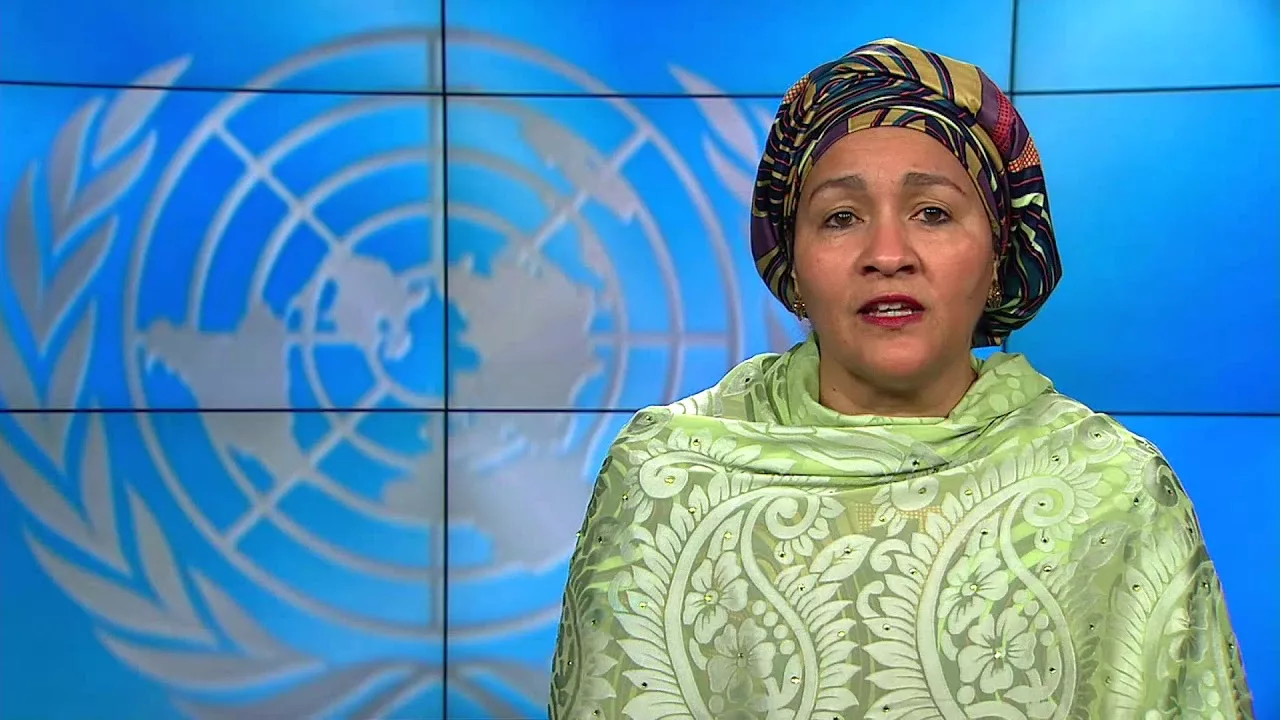Despite being ranked along with Ebonyi as one of the cleanest states in Nigeria, a large number of the about 7.2 million population in Akwa Ibom are currently facing the risk of being hit by epidemic, except for urgent intervention.
The alarm was raised by a Civil Society Organisation (CSO), African Human Development Centre (AHDC).
This followed the outcome of a survey that out of the 31 local government areas, only one (Nsit Atai) has been certified and given Open Defecation Free (ODF) status.
The commissioner for Lands and Water Resources, Capt Iniobong Ekong (rtd), stated this in an interview in Uyo, the state capital. He said that the survey was carried out by the Federal Ministry of Water Resources in conjunction with relevant state ministries, departments and agencies (MDAs).
Blaming lack of effective implementation of the Water Sanitation and Hyegene (WASH) policy in the state on the delay in signing the water bill by Governor Udom Emmanuel, since it was passed into law by the House of Assembly in July last year, Ekong recalled that his ministry fought for the passage of the bill in July last year, and expressed the hope for a cleaner rural Akwa Ibom, when assented.
Speaking with LEADERSHIP Sunday, the chief executive officer (CEO) of the African Human Development Centre (AHDC), Prof Gabriel Umoh, lamented the poor funding and inadequate attention paid to sanitation programmes in the state, noting that the population lives in danger of being hit by an epidemic.
Umoh, a professor of Agricultural and Development Economics, who doubles as the executive director, IbomWASH, funded by the United States Agency for International Development (USAID) and other partners, expressed dismay over the abysmal yearly percentage of budgetary allocations for WASH programmes that ranged between 6.06 in 2019; 3.83 in 2020 and 3.11 in 2021.
He lamented that “in most cases, such cash had not been released for the implementation of the WASH policy in the state.”
He said: “In Akwa Ibom State, available data indicate that the greater percentage of the population practicing open defecation increased from 4 to 11 percent between 2019 and 2021. People are still defecating into gutters, water bodies and bushes in the coastal and rural communities, while the number of people with poor hygiene have also increased from 11 to 17 percent within the period under review.
“77 percent of the world drink water that is contaminated with only 47 percent having access to basic water services. Only 9 percent of urban dwellers access safely managed water, while access to water and sanitation in schools is 12 percent. Sanitation and water issues remain at 0.4 percent in hospitals and 7 percent in public places in the state.”
With only Nsit Atai, amongst the 31 LGAs declared and certified open-defecation free, Umoh charged the government, MDAs to collaborate with non-state actors to holistically drive the process towards giving the entire state the clean bill in order to safeguard the population from the malaise of water-borne diseases.
Acting general manager, Akwa Ibom Rural Water and Sanitation, AK-RUWATSAN, Mr Saviour Udo, said government has been intervening to improve the WASH policy in the state with provisions of toilet facilities and training of sanitation officials towards addressing the prevailing challenges in the sector, but regretted that despite these interventionist programmes by the state government, the state still remains at the lowest rung among states with high ODF status in Nigeria.
Despite Govt Efforts Kwara Residents Still Practice Open Defecation
Despite efforts by the Kwara State government at ensuring a clean and tidy environment, many residents of Ilorin and other parts of the state still resort to open defecation because of the inability to build toilets in their households.
In September 2020, the state government in a bid to tackle the menace of open defecation in the state rolled out several programmes to reverse the situation, one of which was the “Clean Kwara Campaign”, billed to run from 2020 to 2030.
Also, in July 2022, Governor AbdulRahman AbdulRazaq directed the State Community and Social Development Agency (KWCSDA NG-CARES) to deploy every resource to end open defecation in the state through the provision of water and VIP toilets in rural and peri-urban communities.
General manager of KWCSDA NG-CARES, Engr Amamat Haruna, disclosed this during a participatory, rural appraisal visit to Koro Sayodun community of Ilorin West local government area of the state where efforts are being intensified to end the practice as soon as possible.
Though there are billboards at many locations warning residents against open defecation and indiscriminate disposal of waste, almost everyone whose house is near drainage, bush or an uncompleted building has turned such places into toilets.
Residents, especially children, are fond of discharging their faeces openly at such places.
“In this area, many houses do not have toilets, so we did our things openly. A lot of organisations have come to tell us the danger of open defecation but we don’t have a choice. Most people here are too poor to build good toilet facilities for their respective houses,” said a resident of Baruba area, Ilorin, Aminat Baba.
A microbiologist, AbdulKadir Salahu said there are implications attached to the exposure of humans to human waste. Of such implications are diarrhoea and several other dangerous water-borne diseases.
He said, “open defecation attracts flies which eventually fly around our environment and infect our foods and drinks. People drink and eat without knowing what they have ingested into their body system.
“Another dangerous impact of open defecation is that it pollutes the air we breathe. lt is a cause of heart disease, lung cancer, and respiratory diseases in our communities.”
General manager of KWCSDA-NG-CARES, Amamat Haruna said about 30 communities have benefitted from the agency’s intervention in the provision of toilets to discourage open defecation.
She praised Governor AbdulRazaq for supporting and increasing access to basic amenities in both rural and mini-urban communities across the state.
Kogi Tops Open Defecation Habits, Menace Reducing After Enacted Law
Residents of Kogi State have been said to be practicing open defecation more than other people in Nigeria. This is contained in the latest Multiple Indicator Cluster Surveys (MICS) report 2022.
According to the report, more than half of residents of Kogi State, approximately 53 percent, defecate in open places due to absence of toilet facilities.
Kogi was leading in the open defecation until the Kogi State Sanitation and Environmental Health Law of 2022 was signed by Governor Yahaya Bello and was implemented with immediate effect.
After the bill was passed, the state’s Ministry of Environment directed all landlords and landladies, as a matter of urgency, to provide toilets in their houses to prevent open defecation across the state. The new Kogi State Sanitation and Environmental Health Law of 2022 stipulates a fine of N25,000 or 3 months’ imprisonment for anyone caught violating the new law.
Although the federal government and other agencies are in partnership with the state government in the fight against open defecation in Kogi State, much success has not been achieved because authorities insist that the level of compliance at most rural areas is still high.
Apart from the rural communities, open defecation is a normal thing among residents of Kabawa communities in the Lokoja township as those whose houses are uphill descend to the banks of the River Niger to defecate openly.
Local government areas in the state have however keyed into the fight as some of them embarked upon enumeration of houses without toilets and have provided public toilets for rural dwellers in partnership with the federal government and other agencies.
Oyo Ranks Second
Fear has gripped residents of Oyo State following the United Nations Children’s Fund (UNICEF) declaration that the state ranked second in the country in open defecation.
To this end, UNICEF’s chief for Water, Sanitation and Hygiene Nigeria, Ms Jane Beavan, has urged residents of Oyo State to support the efforts of the government to end open defecation.
Speaking recently in Ibadan, she declared that more than half of the people in the state lacked access to safe toilets.
“Children are the ones that suffer the most when there are outbreaks of diseases like cholera and others.
“More than half of the people of Oyo (State) do not have access to safe toilets, and that means more than half of the population practice open defecation.
While noting that Oyo State was not doing well on the ODF, she said efforts must be made by relevant stakeholders to ensure a change in the situation.
According to her, the purpose of the Open Defecation Free (ODF) Roadmap “was to improve the health situation, especially that of the children who suffer more when there is outbreak of diseases.”
Some of the residents who spoke with LEADERSHIP Sunday lamented the failure of the government to provide toilets and other utilities in the rural areas to avert breakdown of diseases.
According to them, the non-provision of potable water in some communities across the state has made them unhygienic.
As a way out, the state government had set year 2028 as the deadline to end all forms of open defecation in the state and launched the “open defecation free (odf) roadmap” to actualise the plan.
The facility which is an outcome of a counterpart fund from the parties, according to the government, would go a long way in ensuring that the 2028 deadline is actualised for all the 33 local government areas in the state to become free from open defecation.
Chairman, Oyo State Rural Water Supply and Sanitation Agency (RUWASSA), Nojeem Omirinde, who spoke on behalf of the government during a media dialogue, said the roadmap was to serve as a template and guide to help the people understand the negative implications of open defecation and why it must be put to an end in the state.
He noted that apart from hygiene and health issues, environmental and sanitation hazards associated with the practice of open defecation come with too many consequences on the people.
Omirinde stated: “As regards open defecation, I am advising individuals to build toilets in their houses. Having a toilet in your own house is for your convenience, safety and that of the generality of humanity so as not to contaminate our underground water. Prevention is better than cure; that is why we are having the open defecation road map for Oyo State.”
He emphasised the importance of having and using toilets, disclosing that only 188 out of the 774 local government areas in Nigeria are open defecation free and Oyo state doesn’t have one.
Governor Seyi Makinde, who realised that the development was bad and hence, partnered with the United Nations International Children’s Emergency Fund (UNICEF), to put an end to it, declared an emergency in the Water, Sanitation, and Hygiene (WASH) sector.
He assured that the Open Defecation Bill that was passed by the Oyo State House Assembly would soon be assented to, adding that the bill would take care of not only environmental cleanliness but also deal with those that will run afoul of government policies.
Enugu Residents Complying With Open Defecation Arrangements
Enugu Residents living in rural and urban areas are complying with open defecation arrangements, investigations carried out by our correspondent revealed.
Our correspondent who carried out investigations in some parts of the state observed that the residents are already complying with the various laws put in place by relevant agencies.
Already, the Igbo-Etiti Government Area of the state with the support of the United Nations Children’s Fund (UNICEF) has launched prohibition of open defecation by-law in consonance with the federal and state governments’ plan of making Nigeria open defecation free by 2025.
In a speech after the launch of the prohibition by-law the chairman of Igbo-Etiti local government area, Anthony Nwodo in company of SSA to Governor Ifeanyi Ugwuanyi on Water, Anthony Dubem Onyia, explained that the launch of the law has given it the teeth to punish anybody caught disobeying the rules.
Launching the law, according to him, was the initial stage of getting the local government to be open defecation free, hence the council started with the enabling laws to give tips for enforcement.
“The first stage is really to sensitise people to get toilets in their immediate vicinity and secondly to have people get to use those toilet facilities,” he said.
He commended UNICEF for a complementary partnership the council is enjoying which he said was why the local government as of today is the first out of 17 local government areas to be declared open defecation free in the state very soon.
It was observed that other local governments have also launched similar campaigns to stop open defecation and it was further observed that residents of the areas are obeying the laws.
A resident of Igbo Etiti, Obinna Ayogu, who spoke with LEADERSHIP Sunday commended the local government chairman and UNICEF for their efforts to end open defecation in Enugu State.
A health official, Mrs Ugwuoke Fidelia said launching of the various laws against open defecation was a step in the right direction towards the eradication of the ugly development.
As at the time of filing this report, there was no official number of local governments that are open defecation free in Enugu State but it was gathered that almost all of them are still engaging in open defecation.
I6% Of 5.9m Borno Residents Practicing Open Defecation – Dr Lawi
Director, State Health Care Development Agency (SPHCDA) in In Borno State, Dr Lawi Auta Mshelia has disclosed that about 16 percent of the 5.9 million residents of the state are still practicing open defecation.
He added that about 944,000 of the residents indulge in open defecation which could be attributed to lack of adequate toilets in homes and resettlement of internally displaced persons (IDPs) to various communities they were previously displaced by terrorists thereby overstretching the existing latrines there.
He regretted that in the past, there used to be sanitary inspectors which is now non-existent and called on the national assembly to revisit the situation and ensure enactment of law towards that.
“Not every home has a latrine. In those days, sanitary inspectors were there but now they are not in existence. There are no public toilets apart from those in the motor parks. Most IDP camps have been closed and not everyone has gone back to their real home; they are still in host communities and the little latrines at homes are now overstretched. It is a big challenge not only in Borno, but the country at large,” Dr Lawi said.
He however said the state government in collaboration with partners are working to manage the situation.
… 40% In Niger
In Niger State, a multiple-indicator survey revealed that 40 percent of the people in the state practice open defecation.
The state is among the worst states practicing open defecation in the country according to the Multiple Indicator Cluster Survey (MICS) 2021.
It was also revealed that the laws and measures put in place to curtail open defecation in the state have not been adhered to, thus the state sought for development partners to mitigate the trend.
Governor Abubakar Sani Bello has promised to put in place the necessary measures to remove the state from among the worst states practicing open defecation in the country.
The governor gave the promise during the sensitisation and dissemination of the MICS survey reports organised by the Niger State Planning Commission in collaboration with the United Nations Children’s Fund (UNICEF) on ending the trend in the state.
It was discovered that open defecation is practiced in the rural and urban centres almost at the same rate, thus the government has made it a deliberate policy in 2023 to end the trend.
The Challenge Of Open Defecation In FCT
The issue of open defecation has become a major challenge to the government, as many Nigerians believe that it is three years to 2025, the timeline Nigeria set to end open defecation but the problem persists.
The problem has continued to persist despite the number of public toilets around major markets and parks in the Federal Capital Territory (FCT) which are available for use as low as N50, and many people still prefer open defecation.
A commercial driver, Okechukwu Chinedu, who plies some major routes in the FCT, explained that one of the major causes of open defecation is because of the locations of most public toilets in the city.
Apart from parks and markets, there are no public toilets along major roads in the city, and most times when he is pressed, he needs to drive a long distance to get a public toilet to use, as there is none within the radius.
“I will urge the government to help us with at least a mobile toilet around most major roads in the city because even when passengers want to use toilets, the next available bush or drainage system is their option,” he said.
Also, a hawker at Berger Bridge, Hassan Dogo, said he cannot resist the temptation of looking for the nearest spots to defecate whenever he was pressed, adding that he would always use the bush very close to where they sit.
“Baba, I do not have any option than to use that place. There is no toilet around here and this affects us,” he said.
A woman who sells food at the Jabi Motor Park axis of the city close to where some people use for open defecation said she doesn’t care where the people defecate, as long as she can market her products at the end of the day.
Although she agreed that the place stinks most times, especially whenever it rains, she would not mind staying there all day to complete her sales.
“I have to sell my food even though I know this area smells, especially when it rains. I pray that the government would consider building a public toilet in this place because it’s hard for people like us to urinate in an open place,” she said.
However, despite the sensitisation and campaign to stop open defecation, many people continue to indulge in it without knowing the health implications and the hazard it can cause to a community.
The World Bank statistics revealed that regions with high rates of open defecation experience a problem in terms of sanitation and proper waste management.
An environmental health expert and medical practitioner, Ephraim Dahattu explained that people who are used to defecating in open places are prone to outbreaks of diseases like cholera and diarrhea and should be given proper orientation.
“Open defecation constitutes a major public health problem due to rapid urbanisation, lack of public toilets and low level of awareness.
“Open defecation is a public menace because it could easily lead to outbreaks of communicable diseases like cholera, typhoid, diarrhea, intestinal infections, respiratory diseases, and tuberculosis. It also causes air and water pollution when human feces are washed away during the rainy season.
“I’d like to advise government at all levels to increase public awareness on the health risk it poses to the populace and it can impede public health,” he said.
Speaking on the possibility of the federal government ending open defecation by 2025, he said that the government was not doing much in the sense that with the guidelines established and distributed in a technical assistance programme to the 36 states and the FCT, only 11 states have so far responded and declared a state of emergency on open defecation.
“I think there is a need for proper coordination of activities as well as synergies from different stakeholders if this must be achieved. 2025 is less than three years away from now. One would not say that this is achievable given the approach and the kind of effort put in place by stakeholders presently.
“We need reforms and take action on open defecation if this must be achieved. There is also a need for a serious monitoring and evaluation mechanism in place to track the progress of the activities around the safe drinking-water, sanitation and hygiene (WASH) programme which are crucial to human health and well-being.
“This is because the Safe WASH is not only a prerequisite to health but contributes to livelihoods, school attendance and dignity and helps to create resilient communities living in healthy environments,” he said.





